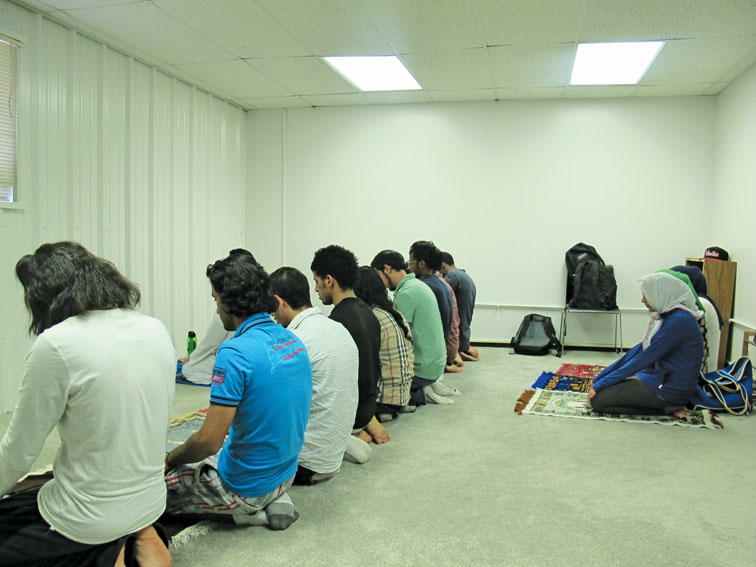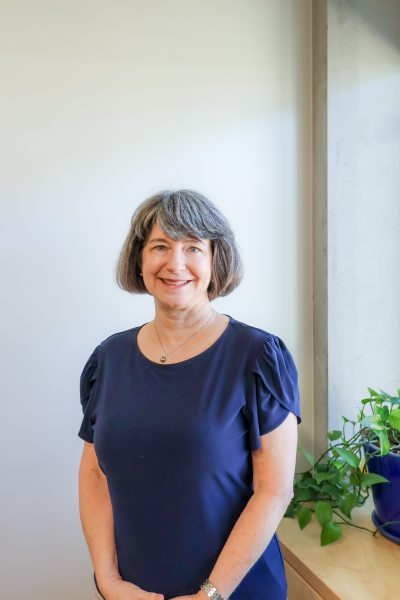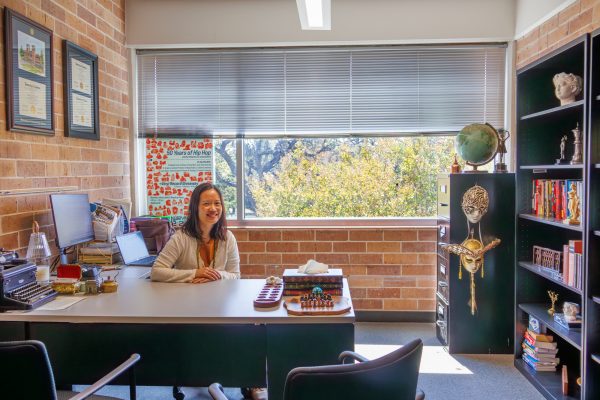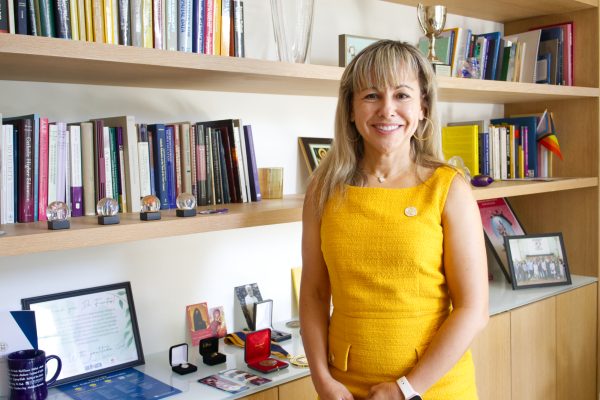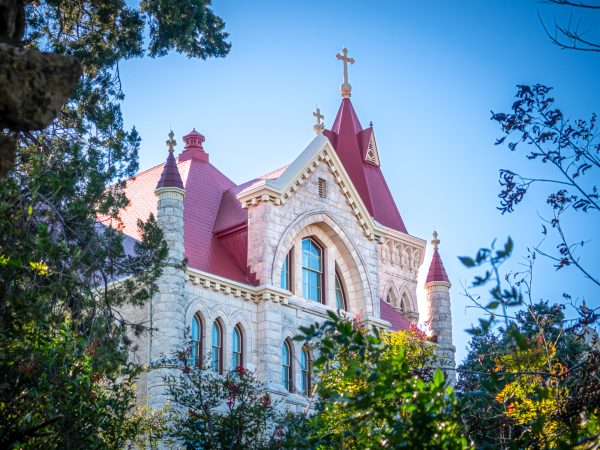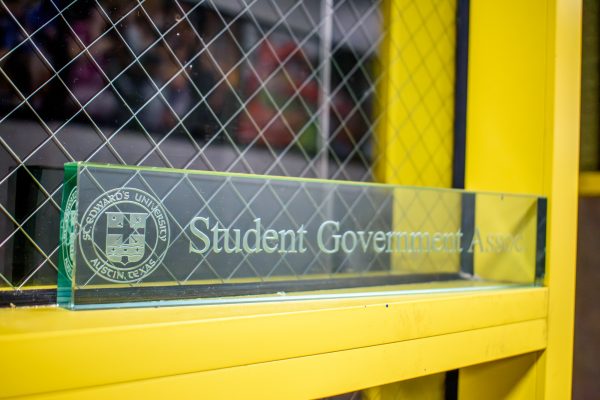Muslim prayer space expands on campus
A new center for prayer has opened up recently on campus. Allocating room 144 in the Woodward Office Building for religious use, Campus Ministry’s endowments have allowed the Muslim Student Association (MSA) to create a permanent mosque on campus.
“We’ve decided to call it the Mary the Virgin Mosque,” said Mohammad Abu-Esba, vice president of the MSA and peer minister of Interfaith Dialogue. “That might sound contradictory, but no. Islam embraces Christianity. In fact, when asked who the most important woman in Islam was, the prophet Mohammad replied, ‘Mary the Virgin.'”
With an influx of international students in the past few years, more Muslims on campus than ever were in need of dedicated space for prayer. Now, they have a permanent space to come to. The room was provided due to multiple offices at St. Edward’s working together, including the President’s Office, Campus Ministry and the Physical Plant, according to James Puglisi, associate director of Campus Ministry.
Abu-Esba had difficulty finding MSA’s presence at all when he first came to campus in 2011.
“The problem with Islam at St. Edward’s University wasn’t the campus faculty or any part of the non-Muslim community. The problem was the community themselves,” Abu-Esba said.
At that time, prayer space for Muslims was barely larger than a closet, allowing three worshippers to fit. It was hardly enough for Friday prayers, which, since MSA had its turn around this year, has reached up to 15 people.
Campus ministry has also agreed to provide funding for their upcoming feast of Iftar, which will be open for non-Muslim students to attend after Ramadan.
Puglisi said he has seen MSA evolve significantly over the past few years.
“The leadership has changed to try and draw in Muslim students instead of doing things for the campus, which is probably better for faith and development. In turn, it could better educate the St. Edward’s community about Islam,” Puglisi said.
Many Muslim students feel that MSA has increased their involvement in practicing the Islam religion.
“I have never been a better Muslim anywhere than at St. Edward’s, and other students I know from Bahrain agree with me. We can be more religious here than anywhere,” Abu-Esba said.
Abu-Esba said many common misconceptions about Islam create a need for awareness and reconciliation.
“In the Introduction to Religous Studies class here on campus, the assigned text says that an angel comes down to tell Mohammad he will be the prophet, and he refuses,” Abu-Esba said. “So the angel chokes him into submission until Mohammad follows his will. Whoever wrote that text is not a Muslim scholar – the word choke isn’t even in Quran. Just in those few lines, students are given a violent message about Islam that was never there in the first place.”
Abu-Esba explained that the angel brings with him a verse from the Quran, but the prophet is illiterate and can’t read it. The angel them embraces him, and, out of love, Mohammad chooses to become a prophet of Allah.
In only a few months, the MSA has bounded forward in establishing a presence of the Muslim community at St. Edward’s. The MSA hopes to expand further with more programming, such as bringing in a sheik on Thursdays to talk about Islam. Their Friday services are open to all members of the St. Edward’s community.

